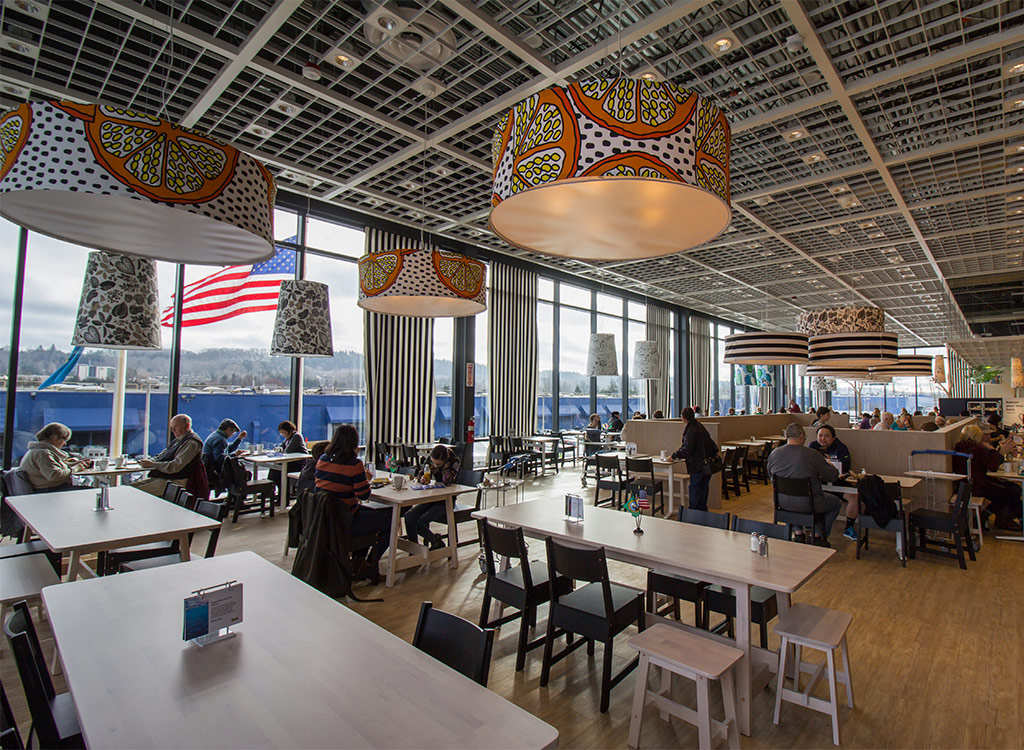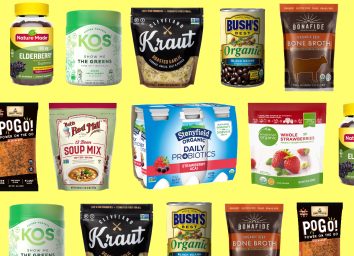Why Your Favorite Local Restaurant May Not Survive Coronavirus
A truly sad reality to emerge from the coronavirus outbreak: A number of locally-owned restaurants will be hard-pressed to survive the effects of the potentially deadly pandemic.
On Monday afternoon, the White House coronavirus task force recommended American citizens do a number of things to prevent the spread of the dangerous pandemic during a press conference.
Chief among them? "Avoid eating or drinking in bars, restaurants, and food courts—use drive-thru, pickup, or delivery options," and " in states with evidence of community transmission, bars, restaurants, food courts, gyms, and other indoor and outdoor venues where groups of people congregate should be closed."
Many states have already shut down bars and restaurants (except delivery) for all businesses, and it seems inevitable that will soon be a nationwide policy. The White House guidelines officially give a 15-day timespan, but even President Trump admitted it could be months before things begin to return to normal.
So, Americans are being directed to not go to restaurants and bars out of an abundance of caution to prevent the spread of COVID-19. But, given the razor-thin margins and complicated economics of small and locally-owned restaurants, it's difficult to see how many of them will survive a temporary shutdown.
Ask any owner of a small restaurant and they will explain how challenging it is to juggle the cash flow of operating the business. There is the ordering of fresh food and ingredients, the payroll for cooks, waiters and support staff, and, of course, the rent an owner has to pay on a monthly schedule. Many restaurant owners are doing their work out of a labor of love, and aren't independently wealthy to survive such an economic disaster.
As Pete Wells outlines in the New York Times, these "frantic few days" of closed doors is turning into a much greater concern—and fast:
"Because many of the fixed expenses of operating a restaurant haven't stopped. There is still rent to pay, and taxes, like the New York State sales tax bill due on Friday. Those bills alone could crush restaurants in a matter of weeks, unless they have heaps of cash in reserve.
'Postponing or waiving the sales tax would be the fastest way to prop these businesses up without the government going out of pocket,' Jonathan Butler, a founder of Smorgasburg and Brooklyn Flea, said on Sunday. 'The other huge factor is how they treat leases. Most people have some form of personal guarantee on their leases. I can't imagine as a policy standpoint they want to come out of this crisis and have small business owners losing their homes because they had a personal guarantee. That's an issue that could be addressed by policy in some fashion.'"
Corporate chains such as Applebee's, Olive Garden and the like—in addition to fast-food chains like Taco Bell, KFC, and McDonald's—all likely have the largesse to help survive a month of downtime. But a majority of these fast food outlets are owned and operated by franchisers who will struggle with the same issues as a Mom and Pop owners (though very likely with support from their corporate food partners).
Despite all this, There is no question that bars and restaurants should be closed for the greater public good. Writing for Grub Street, restaurant owner Alex Stupak makes that very case:
"Right now, the choice to close is not being mandated down. It's trickling up. All the service industries are crushed. We can't pay staff. We can't pay rent. We can't pay our portion of property taxes. How can we pay any taxes when we have no taxable transactions left? I'm thankful to have great landlords, tremendous relationships with people who understand what's really happening, but my predicament shouldn't be contingent on whether my landlords are good people.
We need help. Restaurants are pass-through businesses. They do not hold a million-dollar float—these businesses are just not set up that way. At Empellón, we went from a little money in the bank to bled dry. It was not a slow, steady decline—it was a straight drop."
Stupak arrives at the logical conclusion that all business-owners are coming to amid this looming economic disaster. Stupak asks himself rhetorically, "How much money do we need to cover last week's payroll, and what will the cost be just to keep us in hibernation mode? And how long will this last?"
If the U.S. government is willing to bail out industries negatively affected by coronavirus, like the airline and cruise industries, then shouldn't they also take care of restauranteurs? If not, we could end up seeing many of our favorite dining spots go belly up.
And what a sad result that would be.









